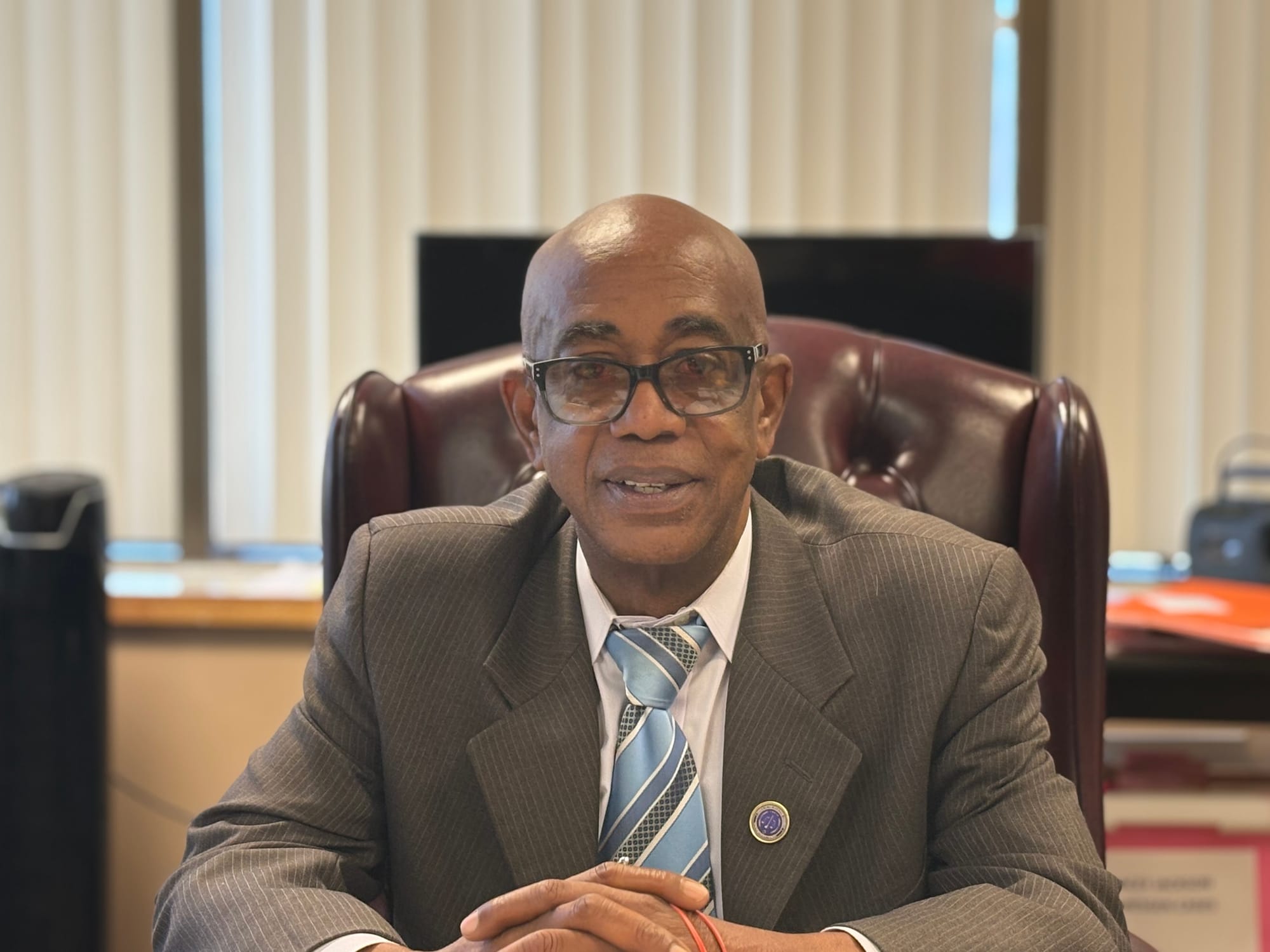A Tuesday VIEW FROM A PEW: “God Don’t Need Your Guilt — He Wants Your Heart.”
This conversation is for somebody who’s been wrestling with what it means to be blessed and still be biblical.

Elected nine months ago as Muscogee County’s Solicitor General, Shevon Sutcliffe Thomas has reshaped the office with a focus on accountability, compassion, and community partnership. Solicitor General Shevon Sutcliffe Thomas speaks with Courier Eco Latino about his first nine months in office and his vision for a fairer, more compassionate system of justice.
A New Chapter in Muscogee County Justice
When Shevon Sutcliffe Thomas took office as Solicitor General of Muscogee County on January 1, 2025, he knew the job would be demanding. Nine months later, he describes the experience as both “challenging and rewarding,” balancing heavy caseloads, staff management, and a renewed focus on community engagement.
“I knew what I was getting into,” Thomas said. “But when I saw the reality of the volume and the work itself, it really hit. You have to be in it to understand it.”

Understanding the Role
Q: For those who may not know, what does the Solicitor General’s Office do?
A: Our office prosecutes all misdemeanor offenses that occur in Muscogee County. We also represent the State on any appeals resulting from convictions in our court.
Defining a Misdemeanor
Q: What types of cases fall under misdemeanors?
A: Misdemeanor offenses are crimes that carry up to 12 months in jail or a fine. These include speeding, domestic violence, and misdemeanor vehicular homicide. All traffic offenses are misdemeanors unless repeated within a certain period — like multiple DUIs or driving with a suspended license — which can then rise to felony status.
Inside the Courtroom
Q: Which judges do you appear before?
A: We have two State Court judges — Chief Judge Andy Prather and Judge Pythias “Pete” Temesgen— who preside over all criminal cases in State Court.
Leadership by Example
Q: Have you made any changes since taking office?
A: A lot. My military background taught me that leadership means everyone should know their job and someone else’s. From day one, I made sure the office wouldn’t stop functioning just because someone’s out. We’re here to serve the public, and that mission continues no matter what.
The Team Behind the Work
Q: How large is your staff, and what roles make up your team?
A: We have 21 employees — six attorneys, deputy clerks, investigators, and victim advocates. Our investigators handle the case files that move from Recorder’s, Municipal, or Magistrate Courts. When cases are “bound over,” they make sure all reports and evidence are properly transferred. It’s a well-coordinated system that keeps everything moving.
From Private Practice to Public Service
Q: You practiced law privately before taking this position. Has that helped you?
A: Definitely. My time in private practice — and earlier as an Assistant Solicitor in Coweta County — helped me see both sides. My philosophy is about accountability and compassion. If someone’s license is suspended for unpaid child support, it doesn’t make sense to fine them further when that prevents them from paying in the first place. We focus on solutions that let people work, support their families, and operate within the law.
“We’re trying to hold people accountable — not destroy their livelihoods,” Thomas said.
A Leader, Not Just a Lawyer
Q: How often do you personally appear in court?
A: My main role now is oversight and leadership. I make sure prosecutors have what they need to move cases efficiently. I’ll step in when necessary — trying cases isn’t new to me — but my focus is on leading the team and ensuring justice is served fairly.
The Transition and the Legacy
Q: Was it difficult leaving private practice behind?
A: Not really. When I took office, my firm — the Law Office of Shevon Sutcliffe Thomas — closed, but my son opened his own practice, the Thomas Law Firm, in the same location. It was more a transition than a closure. What hasn’t changed is my view of the law. I see myself as a gatekeeper of the Constitution. Whether defending or prosecuting, I protect both the defendant’s rights and the State’s. Justice requires balance.
Serving the People
Q: What message do you want the public to take from your leadership?
A: That this office is about the people’s business. That’s what I ran on, and that’s what I stand on. We can enforce the law while showing compassion. Since taking office, I’ve reached out to civic and social organizations — from the American Legion to civic clubs — to connect defendants with resources like counseling and job programs.
“I believe in compassionate prosecution — holding people accountable while helping them change course.”
Thomas said he is especially passionate about helping seniors, young adults, and military personnel.
“If a grandmother ends up on probation because her grandchild forgot to pay the insurance, that doesn’t make sense,” he said. “We’re looking for fair, common-sense outcomes.”
Building Partnerships and a Fairer System
Thomas is also building partnerships with Fort Benning officials to better address cases involving soldiers.
“We’re going to hold everyone accountable,” he said, “but when we can help, we’ll help. The goal isn’t to fill up the jail — it’s to make the community stronger.”